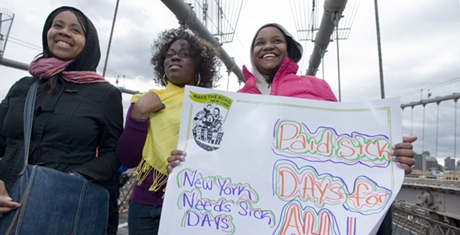IT’S A DEAL: City pols will mandate paid sick leave for private biz; Brooklyn Chamber cheers

b_sick_day_bill_MRNY.jpg
Brooklyn Chamber’s Scissura: ‘Makes good business sense’
New York City Council members stood with business leaders and labor advocates Friday morning to support a deal to bring paid sick leave to workers in New York City.
City Council Speaker Christine Quinn, who has long sided with business interests in opposing the measure, announced the agreement Thursday night after facing increasing pressure from Council Members and political rivals.
